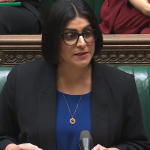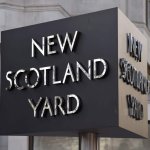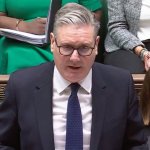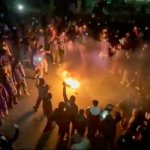The death toll from the earthquakes that struck Turkey and Syria on February 6 has climbed above 21,000 in four days, exceeding the World Health Organization’s estimate of 20,000. But it continues to rise by the hour as more grim discoveries are made under the rubble.
Search-and-rescue efforts are well under way in Turkey after an initially slow response, but have yet to really take off in northern Syria. Syrians in rebel-controlled areas were kept waiting for help due political tensions and shattered infrastructure following the earthquake and more than ten years of conflict.
So far, nobody knows how many people are still stuck under the rubble. Ovgun Ahmet Ercan, a Turkish earthquake expert, told The Economist he had estimated that 180,000 people or more may be trapped under the rubble, nearly all of them dead.
A UN convoy finally gained access to northern Syria on Thursday morning – a day after what is considered to be the critical 72-hour window for finding survivors. But hopes of a really effective rescue mission were dashed as there was no heavy search-and-rescue equipment provided. Now the survival rate of people trapped under the rubble stands at less than 6%.
To avoid losing more lives and reduce suffering, the international aid response will now be more critical than ever. Based on my doctoral research which focused on humanitarian aid in conflict and political crisis situations, here are the key priorities.
Huge challenges
This will be an extremely challenging aid operation. For a start, the weather is not on the responders’ side – both countries are experiencing a harsh wet winter. There are also regional political tensions and millions of refugees in both countries due to the conflict in Syria.
Syria faces a convergence of disasters. Conflict, a cholera outbreak and already dangerously overstretched medical facilities are just some of the issues to deal with.
A crucial UN aid hub for northern Syria, close to the epicentre of the initial earthquake in Turkey, was affected. This could have worsened the shortages of key supplies needed immediately after the earthquake struck.
Political response
One of the most important decisions a government makes in disasters is whether to declare a state of emergency. For humanitarian organisations, this means that they can freely work in the affected areas. Turkey’s president, Recep Tayyip Erdoğan has already declared a three-month state of emergency. As a result, the response in Turkey has received significantly more resources and media attention.
The Syrian government has not declared a state of emergency. This means that it does not officially recognise or support any organisations that work in rebel-controlled areas. This is risky for aid workers. There are no official safety guarantees yet and the proliferation of armed groups increases security risks for rescue-and-relief missions.
The support available to Syria will only be effective if the Assad regime is willing to grant access to rebel-controlled areas. International aid organisations can only do so much when facing an uncompromising government. Other governments should make earnest attempts to engage with Syria’s president, Bashar al-Assad. The priority for Syria is to negotiate with the government and other armed groups for safe and unhindered access to ensure that more aid is delivered for as long as needed.
Money is vital
Cash donations from the public and from governments are important. Ideally, they should not be earmarked – meaning that donors should not dictate how the money should be spent. This allows aid organisations to quickly adapt their responses when needed.
Obviously, at present, the top priorities are food and water, access to medical assistance and clothing and shelter suitable for the current weather conditions.
It’s understandable that the public wants to see supplies sent as quickly as possible – but the state of infrastructure in the earthquake region will not support this and storing supplies in the area increases the risk of theft. Also the type of support needed is changing fast as focus shifts from search and rescue to keeping people alive.
The goal should be to ensure slow but steady supply of essential items. This means finding safe alternative access routes, for example using sea freight to build a continuous pipeline of international supplies and constantly delivering supplies to badly hit areas using small vehicles. Pack animals such as donkeys can also play an important role in delivering basic supplies and providing an ambulance service for people in difficult to reach places.
Aid corridors to the northern Syria must be opened. In the recent past Russia and China have blocked UN efforts to reopen several routes from Turkey to Syria closed by the Assad regime. Meanwhile, Damascus refuses to allocate resources to rebel-controlled territory and is accusing responding international organisations of “funding terrorists”. This is going to require a major diplomatic effort so that aid flows from both sides.
Aid organisations must coordinate and collaborate efforts with local communities and political actors, especially important in northern Syria where international aid workers were forced out several years ago because high security risks.
Caring for the dead
As already mentioned, there is also a cholera outbreak in the afflicted region. The World Health Organization identifies cholera as one of the few diseases that can be transmitted from dead bodies, so this can pose a huge public health risk following a natural disaster.
To avoid repeating the same mistakes that were made in Haiti where huge numbers of people ended up infected, disease control should be a priority. This will require specialist help to ensure proper sanitary conditions and burials.
The slow response does not need to be defining feature of this crisis. There is still time for coordination, collaboration and diplomacy to get things moving and save as many lives as possible.
Nonhlanhla Dube does not work for, consult, own shares in or receive funding from any company or organisation that would benefit from this article, and has disclosed no relevant affiliations beyond their academic appointment.










